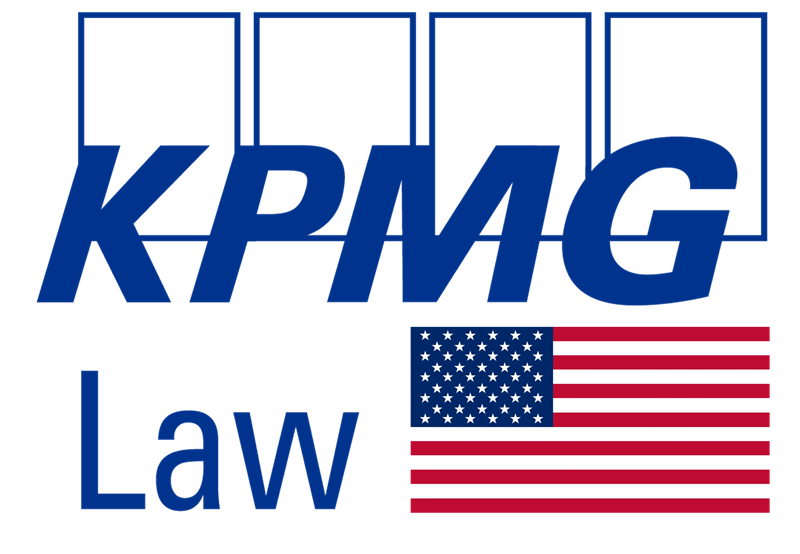
KPMG’s Bold Move: How Arizona’s ABS Rules Are Reshaping the U.S. Legal Landscape
Posted on January 22, 2025 by Law Leaders
KPMG’s initiative to establish a law firm in Arizona marks a significant development in the U.S. legal landscape. By leveraging Arizona’s Alternative Business Structure (ABS) program, KPMG aims to integrate legal services into its existing offerings – potentially reshaping the practice of law in the United States. This move not only challenges traditional law firms but also prompts a reevaluation of regulatory frameworks and the future role of multidisciplinary practices.
THE ORIGINS OF KPMG’S LEGAL AMBITIONS
In January 2025, KPMG US filed an application to establish KPMG Law US LLC in Arizona, seeking to become the first Big Four accounting firm to own and operate a law firm in the United States. This application was made possible by Arizona’s ABS program, introduced in 2021, which permits non-lawyers to have ownership interests in law firms—a departure from the traditional American Bar Association (ABA) rules that restrict such ownership to licensed attorneys. As of this article, there are currently over 114 Arizona ABS Law Firms registered with the Arizona Supreme Court.
The Arizona Supreme Court’s Committee on Alternative Business Structures unanimously recommended approval of KPMG’s application, with the final decision expected from the state’s high court on January 28, 2025.
IMPLICATIONS FOR THE U.S. LEGAL MARKET
KPMG’s entry into the U.S. legal market by operating as an Arizona ABS Law Firm could have far-reaching implications:
- Increased Competition: Traditional law firms may face new competition from multidisciplinary entities capable of offering integrated services. KPMG’s global presence and resources could attract clients seeking comprehensive solutions, potentially impacting the market share of established law firms. Smaller multidisciplinary ABS Law Firms like Arete Financial and Legal Solutions have already successfully shown this model can work effectively in Arizona.
- Regulatory Reevaluation: Arizona’s ABS program challenges the conventional ABA Model Rules of Professional Conduct, which prohibit non-lawyer ownership of law firms (ABA Model Rule 5.4). KPMG’s successful application may prompt other states to reconsider their regulations, especially if clients respond favorably to the integrated service model. Learn More About Arizona ABS Changes Here
- Service Innovation: According to reports KPMG plans to focus on large-scale, process-driven legal work, such as contract management and compliance services. By utilizing advanced technologies, including artificial intelligence, KPMG aims to enhance efficiency and reduce costs, setting new standards for service delivery in the legal industry.
LESSONS FROM INTERNATIONAL MARKETS
The Big Four accounting firms, including KPMG, have previously expanded into legal services in other jurisdictions:
- United Kingdom: Following the Legal Services Act 2007, which allowed non-lawyer ownership of law firms, all Big Four firms established legal practices in the UK. KPMG obtained ABS status in October 2014. However, despite initial ambitions, the Big Four’s legal ventures in the UK have faced challenges, including market saturation and internal strategic changes. For instance, EY’s UK legal headcount shrank by 20% in 2024, reflecting the difficulties in scaling their legal operations.
- Australia: Similar regulatory changes allowed the Big Four to offer legal services, leading to a competitive market where traditional law firms had to adapt to the new entrants.
These initial international experiences suggest that while the integration of legal services into multidisciplinary firms offers opportunities for innovation and client service enhancement, it also presents challenges related to market positioning, regulatory compliance, and internal resource allocation.
POTENTIAL CHALLENGES AND CONSIDERATIONS
Despite the potential benefits, KPMG’s venture into the U.S. legal market may encounter several challenges:
- Regulatory Scrutiny: The divergence from traditional ABA rules may attract scrutiny from legal regulators concerned about maintaining professional independence and ethical standards. Ensuring compliance across different jurisdictions within the U.S. will be complex with the Arizona ABS model restricting attorney employment to the State of Arizona – necessitating co-counseling relationships with other law firms outside of Arizona.
- Conflict of Interest: Offering both audit and legal services could lead to conflicts of interest, particularly concerning auditor independence. KPMG will need to implement sufficient safeguards to address these concerns, possibly limiting the scope of services offered to certain clients.
- Market Acceptance: Convincing clients to adopt a multidisciplinary service model requires demonstrating clear value propositions versus more traditional bifurcated business models. Traditional law firms may emphasize their specialized expertise and independence as competitive advantages.
THE ROAD AHEAD
KPMG’s initiative in Arizona could serve as a catalyst for broader changes in the U.S. legal industry. If successful, it will likely encourage other Big Four firms to pursue similar paths, leading to increased competition and innovation. However, the extent of this impact will depend on various factors, including client receptivity, regulatory responses, and the ability of multidisciplinary firms to deliver high-quality legal services without compromising ethical standards.
As the legal profession continues to evolve, stakeholders must engage in thoughtful discussions to balance the benefits of integrated services with the need to uphold the core values of legal practice. KPMG’s foray into the U.S. legal market is a significant development that warrants close attention from practitioners, regulators, and clients alike.
 1-800-LAW-Leaders (529-5323)
1-800-LAW-Leaders (529-5323)